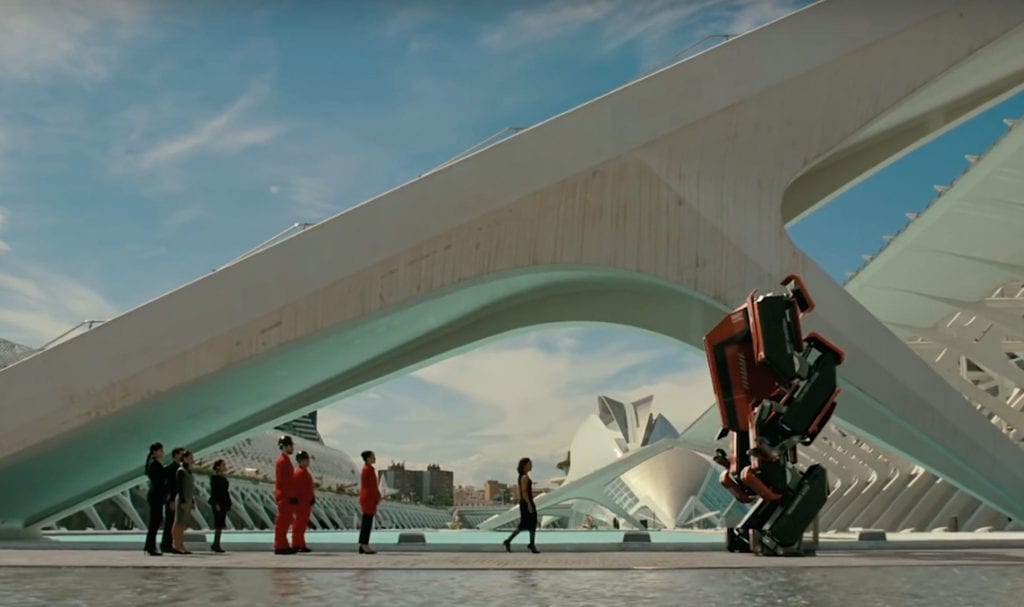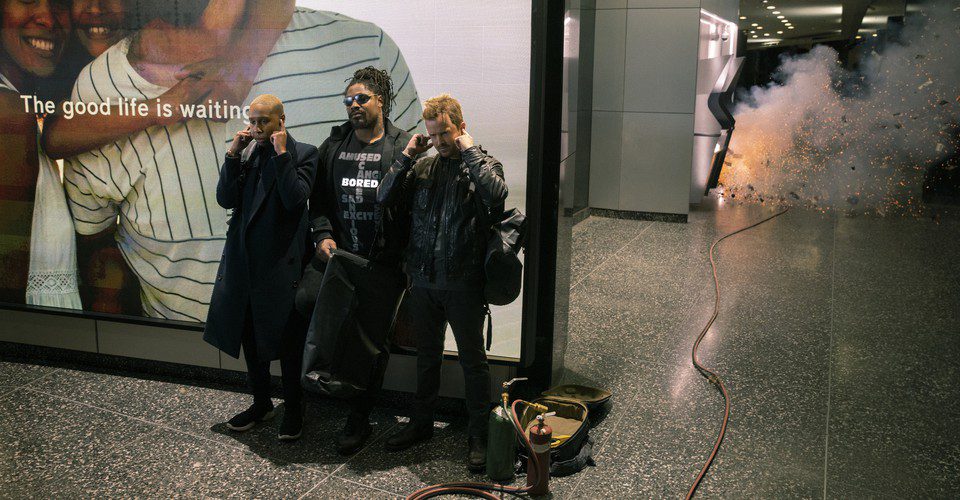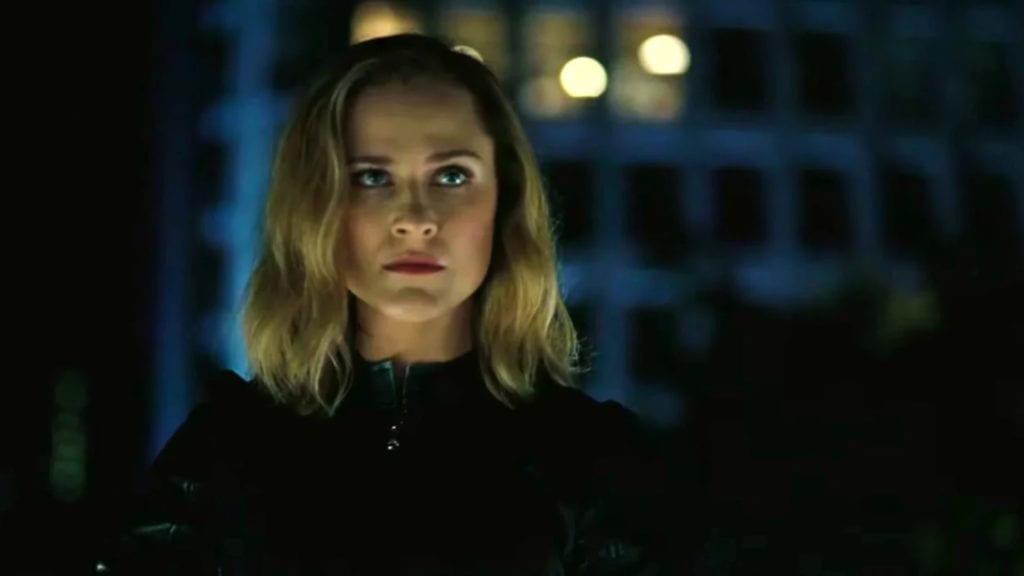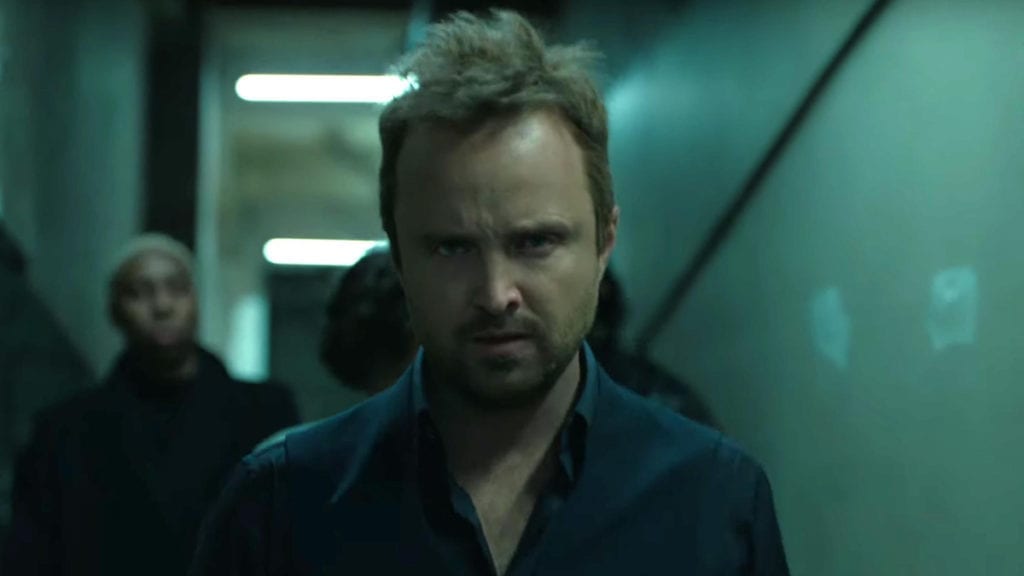Major Spoilers Ahead
A Flawed Season That Packs a Human Punch Whilst Suffering from its Endless Twists
Westworld’s First Two Seasons
The sci-fi drama series Westworld has gone on quite a journey since it first aired. Drawing from the earlier films, the show initially focused on a western theme park populated by androids called ‘hosts’. Humans visited the theme park to do whatever they wanted and fulfill their darkest desires. Nothing was off the table. Westworld’s first season forced us to watch what the humans did to the hosts. The first season made us sympathise with the hosts and root them on. Even when the show mused on theology and other philosophical theories, it never lost its way. It had a clear focus. As the hosts gradually gained consciousness, everything built up to a brilliant crescendo where they finally rebelled against their masters. Then came along Season 2.
After a fantastic first season, expectations for the Westworld’s sophomore outing could not be higher. The season was a let-down for many as it muddied the waters with two timelines happening concurrently. The show still had a focus as it built up to Dolores escaping from the park and explored the different ways to fight for your kind. However, occasionally it lost its way. In my opinion, that made for some excellent episodes, notably “Kiksuya”, and the story was not that hard to follow. At times the two timelines felt unnecessary, but they did fulfill their purpose and the decision paid off in the end. Nevertheless, those who expected a more linear approach to storytelling were left sorely disappointed and confused by the end of Season 2.

New Look, New Westworld?
On first look, Westworld’s new season looks like a reboot of kinds taking the hosts out of the park and plunging them deep into the real world in 2058. The futuristic setting certainly helps give Westworld a new look. The real world is a breath of fresh air. A variety of settings are on display and believable futuristic technology features. The cinematography is stunning. The action sequences are amazing especially those with Maeve involved. The character goes from a World War 2 shootout to wielding a katana against Dolores. This certainly feels like a streamlined reboot in the best way possible.
Upon further viewing, on the other hand, it seems like the writers are still stuck in their old ways. For Season 3, that is both a good thing and a bad thing. Westworld would not be the same show without its deep dives into philosophical subject matter. Season 1 explored the power balance between humans and their creations and the search for consciousness. Season 2 asked what the right way is to fight for your kind. Now Season 3 blurs the lines between humans and hosts and explores the idea of freedom.

Putting Humanity Under the Microscope
Westworld’s new season makes for excellent hours of television, yet it cannot help but feel like a re-tread of Season 2 in its main ideas. Season 3’s focus on freedom is just Season 2’s idea presented in a different way as Dolores sought to escape from the park in the earlier season while Maeve sought to live in a safe simulation. However, Season 3’s main triumph lies in the subtle difference. While Season 2 solely focused on the hosts getting their freedom, Season 3 instead turns its focus to the humans. This superbly draws a parallel between the humans and the hosts as Westworld proposes that the humans are on their loops as well.
Season 2’s storyline about data being smuggled out of the park finally pays off with villainous Serac using the data to model human behaviour and then govern humans in the real world using the AI Rehoboam. Westworld, whether intentionally or not, is using Foucault’s ideas about repressive power and normalising power. The majority of humans do not act in fear of punishment but act according to social norms dictated by Rehoboam. They act due to normalising power. A minority, on the other hand, which Serac terms “outliers”, are completely free to cause chaos and can only be governed by repressive power. We see this repressive power in action inside Serac’s facilities where patients undergo a personality change. An advanced AI controlling human behaviour might be a bit far-fetched but Westworld nevertheless raises the fascinating idea that maybe we don’t that much control over our lives. Maybe how we act is dictated by everything and everyone around us.
Social constructs undeniably determine how we lead our lives from birth to death. There is a clear hierarchy and the system is stacked against some people, yet the world just goes on. People’s lives are determined from birth based on their class, yet nobody does anything about it. The poorest are not free and nobody is in this world. Westworld by dreaming up the extreme manages to perfectly capture this. Notice furthermore how the park was used by humans to fulfill their darkest desires yet in the real world even William holds back. The savagery of humanity is curbed by societal structures as Hobbes argued. Serac hoped to curb these impulses even more efficiently by gathering data from the park. Humans are just not that complex. There is nothing special about us compared to hosts. A lot of this feels like an extension of Season 2’s ideas; however, by focusing more on the humans, Westworld’s third season hits closer to home. By ending in chaos, Westworld embraces the ugliness and the beauty in a world where people are truly free.

The Struggle
This season’s main focus was on Dolores, after her escape from the park last season. Dolores had a master plan and was struggling to achieve change. Precisely what she wanted to do – Now that is the problem.
Even more so than Season 2, this latest season has been unnecessarily twisty. The show went in one moment from painting Dolores as the hero then to painting her as the villain and back again. Most of this felt like the writers were constantly trying to pull a quick one up on their audience. You could never be certain whether Dolores was the villain or Serac was. The writers were probably trying to blur moral lines to suggest that both characters could be interpreted either way but with Dolores’s aims unknown for most of the season and even more twists involving Serac, it just felt confusing and completely unnecessary. The writers could have presented each character’s motivations earlier on letting the audience decide instead. That would have been much better. Keeping up with the later episodes especially was just not enjoyable and felt like a painstaking task.
At least the trajectory of Dolores’s storyline was very clear. The opening credits very early on hinted at this. The bird flying into the plane’s engine was meant to represent Dolores sacrificing herself for her kind. The writers gave Dolores a fitting end. The character has come so far since her introduction in Season 1 as a helpless girl. Dolores, initially the least likely candidate, fought back against her oppressors. She was the only one to escape the park. In the real world, she started a revolution and, in her last breath, turned Rehoboam against Serac.
The writers have treated Dolores properly by having her go out on a triumphant albeit tragic note as her memories are finally wiped. Dolores chose to see the beauty in the world and freed humans from their loops. Mirroring the hosts’ journey in Season 1, Dolores needed to plunge the world into chaos for people to be truly free. Dolores, in the end, cared for both hosts and humans in her own way. With Chalores and others scheming though, one side will emerge triumphant and it is odd that Dolores Prime will not have a hand in it. Dolores Prime needed to go out this season by sacrificing herself. The finale delivered on that but ultimately it did not do enough to lay out clearly what Dolores’s plans were.

Other Characters
Apart from Dolores, the standout character this season was Caleb. Caleb is so fascinating because he is essentially a nobody – a human and one of the “outliers”. Caleb feels so out of place in Westworld, and that is why his presence in this season is a stroke of genius. The character is a human seemingly destined to lead a miserable life and commit suicide in the end. The system, Rehoboam, has determined that his life is meaningless and that he has no bigger part to play. His actions may be questionable, to say the least, yet Caleb is the first heroic human presented on the show. Caleb’s reconditioning illustrates the worst that humans can do but he serves an example of the best that they can be. Caleb shows compassion to Dolores in Park 5 and when he finds her on the streets. He thinks not of himself but of others.
The execution was not always perfect since too many storylines were happening at the same time. Caleb’s past should have been the focus of one episode but instead, it was just another storyline. The other storylines involving Bernard and Stubbs, and Maeve felt like filler storylines at times and could certainly have been cut down to give the season more time to breathe. Maeve’s storyline at least paid off as it built up to a dramatic fight with Dolores. The storyline involving Bernard and Stubbs, on the other hand, did not and felt pointless. The characters did not make any impact this season and the finale only teased a bigger role for them in Season 4. Teasing is never enough. Season 3 had a duty to deliver on great storylines for each character. A lot of Season 3 just felt like a setup for a better Season 4 focused on a post-apocalyptic world.
William’s storyline also went nowhere. After overcoming his trauma, William wrongly realised that he was the hero and that he alone could save humanity. However, he did absolutely nothing worthwhile in the finale. In addition to that, William got killed off in the post-credits scene and replaced by a Man in Black host, so his storyline never paid off. This is perhaps the most frustrating turn that Westworld could take the character. Serac got slightly better treatment as he eventually saw everything come crashing down on him. The only let-down though is Westworld’s treatment of Serac as a villain. Each episode built up Serac as a villainous character albeit someone who wanted to save the world from itself. However, the season finale undermined that by making Serac a mere puppet of Rehoboam. The reason why is clear: Serac completely believed in the system so he surrendered his free will to it. Nevertheless, it is frustrating after the show built up Serac as a complex character with complex motivations.
The Acting
Regardless of how the show treated its characters, one thing is undeniable – the acting this season was superb. The show has always delivered on the acting front again and again in each season. Evan Rachel Wood was spot on when she called Westworld “the acting Olympics”. All the performances were great but the actors worth mentioning especially are Ed Harris, Evan Rachel Wood, and Aaron Paul. Harris this season actually makes us care for William humanising him through his performance. Wood showcases a complete range of emotions capturing Dolores at her most fierce and determined. Aaron Paul joins the cast but does not disappoint in his role as Caleb offering a nuanced look at those cast out by society. Paul plays Caleb as a lost soul conflicted about how life has treated him and trying to find his place in the world.
Conclusion
The latest season of Westworld certainly has a new look as it transports us to the real world in 2058. Westworld’s third season showcases stunning settings, believable technology, and fantastic set pieces. Do not be fooled though – The show has not yet lost sight of its old ways. Westworld once again hits a home run with superb acting and philosophical musings. This time around Westworld focuses on the concept of freedom in a season that re-hashes and expands on Season 2’s ideas. Its stroke of genius though is how Season 3 zooms in on humans to draw parallels between them and the hosts. No one is truly free in this world, not even the humans as exemplified by Aaron Paul’s Caleb. The show’s proposal that society shapes who we are rings true and hits close to home.
The writers push their old tricks too far in one respect though with unnecessary twists that leave the viewer reeling in confusion. To keep up with every aspect of Westworld’s third season is a painstaking task. Whether the show rewards its viewers is questionable. Dolores does get her grand exit; as for the other characters, notably Bernard, Stubbs, and William, their storylines go nowhere worthwhile and end up being disappointing. The finale relied too much on teasing for the next season instead of paying off key storylines. Teeing up these characters for big things next season is just not enough.
Westworld’s third season takes the show’s formula to the extreme. Things get out of hand, to say the least. This season may have broken the world but maybe not in a good way.
Pros:
+ The real world
+ Action sequences
+ Philosophical storyline
+ Parallels between humans and hosts
+ Dolores’s fate
+ Caleb
+ Superb acting
Cons:
– Somewhat a re-tread of Season 2
– Confusing
– Side storylines
– Lack of closure
